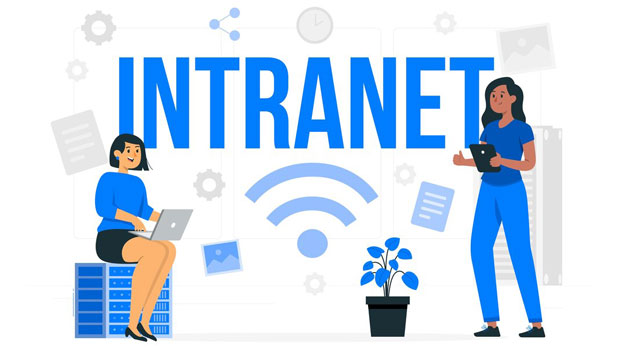In the current digital world, where access to content is often restricted or blocked by various websites or governments, the need for effective tools to bypass such restrictions has grown significantly. One of the methods widely discussed is the use of dynamic proxy sites, which are designed to mask the user's real IP address by routing their internet traffic through proxy servers. This process allows users to access websites and services that might otherwise be blocked in certain regions. In this article, we will delve into whether dynamic proxies can effectively prevent blockage, examining their functionality, advantages, limitations, and real-world applications. Understanding Dynamic Proxy SitesBefore discussing the effectiveness of dynamic proxies in preventing blockages, it is essential to understand what they are and how they work. A dynamic proxy site uses a rotating system of proxy servers that continuously change the IP addresses used for internet access. Unlike static proxies, which rely on a fixed IP address, dynamic proxies provide multiple IP addresses that can be rotated automatically or manually. This rotation makes it harder for websites to block or track users based on a single IP address.Dynamic proxies are typically employed for activities such as web scraping, circumventing geo-restrictions, or maintaining anonymity online. The advantage of dynamic proxies lies in their ability to avoid detection methods used by websites to block IP addresses. However, their effectiveness can depend on several factors, which we will explore in the following sections.The Role of Dynamic Proxies in Preventing BlockageDynamic proxies play a significant role in bypassing website restrictions. Many websites employ blocking mechanisms to prevent unwanted access, often using IP blacklisting, CAPTCHA challenges, or rate limiting. Dynamic proxies can mitigate these methods by changing IP addresses frequently, making it difficult for websites to identify and block a user's activity.1. IP Blacklisting Protection Websites and services often use IP blacklists to block users from accessing content. When a user’s IP address is flagged, the system will deny access from that address. By using dynamic proxies, users can rotate between different IPs, avoiding detection and making it difficult for websites to maintain an up-to-date blacklist.2. Avoiding Geo-Restrictions Some websites restrict access based on geographic location. Dynamic proxies allow users to connect through IP addresses from different regions, enabling access to content that would otherwise be unavailable due to geo-restrictions. This is particularly useful for streaming services and websites with country-specific content.3. Bypassing Rate Limiting Many websites use rate limiting to prevent users from making too many requests in a short period. This is commonly seen in activities like web scraping or automated browsing. Dynamic proxies can help by rotating IP addresses, making it appear as if multiple users are accessing the site, thus bypassing the rate limits.Advantages of Dynamic Proxy SitesThe use of dynamic proxy sites comes with several advantages that make them appealing for users looking to avoid blocks or restrictions.1. Enhanced Privacy and Anonymity Dynamic proxies offer a higher level of privacy than static proxies or direct browsing, as they continuously change the user’s IP address. This makes it harder for websites, hackers, or third parties to track a user’s activity and location. For users concerned about online privacy, dynamic proxies can provide an extra layer of security.2. Improved Access to Restricted Content Dynamic proxies enable users to access content that may be restricted in certain regions, including news websites, streaming platforms, and government-controlled services. By using different IP addresses from different locations, users can bypass region-based restrictions and enjoy unrestricted access.3. Automation and Scalability For businesses or individuals who need to perform tasks like web scraping, market research, or data mining, dynamic proxies offer scalability and automation. Multiple IP addresses can be used simultaneously, speeding up the process and allowing for a larger volume of data collection without triggering blocks or restrictions.Challenges and Limitations of Dynamic ProxiesWhile dynamic proxies offer many advantages, they are not without their challenges and limitations. It is important to understand these limitations to assess whether they are the right solution for your needs.1. Speed and Performance Issues Because dynamic proxies rely on rotating multiple IP addresses, there may be a noticeable drop in speed and performance. When switching between proxy servers, latency can increase, leading to slower loading times or disruptions in service. This can be particularly problematic for time-sensitive activities such as live streaming or online gaming.2. Limited Proxy Pool The effectiveness of a dynamic proxy depends on the size and quality of its proxy pool. If the proxy provider has a limited number of IP addresses, websites may still be able to detect patterns in the usage of certain IPs, leading to detection and blocking. Larger, high-quality proxy pools can mitigate this issue, but they may come at a higher cost.3. Detection Mechanisms and Countermeasures Advanced websites and services are constantly evolving their detection mechanisms to identify and block proxy users. Techniques like machine learning algorithms, fingerprinting, and behavior analysis can make it harder for dynamic proxies to evade detection. Some websites might even require advanced CAPTCHA systems or phone number verification to further hinder proxy access.4. Legal and Ethical Considerations The use of proxies to bypass geo-restrictions, web scraping, or access content without authorization can raise legal and ethical concerns. In some cases, using proxies may violate the terms of service of certain websites or lead to unwanted consequences, including legal action or permanent bans.Real-World Applications of Dynamic Proxy SitesDynamic proxy sites have a wide range of practical applications in various industries. Here are some real-world examples where dynamic proxies are used effectively:1. Web Scraping and Data Mining Dynamic proxies are commonly used in web scraping and data mining activities, where businesses collect large amounts of data from various websites for analysis. By rotating IP addresses, these businesses can avoid detection and ensure uninterrupted access to the data they need.2. Market Research and Competitor Analysis Companies often use dynamic proxies to gather information about their competitors or to perform market research. By accessing websites anonymously and from different locations, businesses can get an accurate picture of competitor pricing, inventory, and marketing strategies without being blocked.3. Access to Geo-Restricted Content Streaming services and news platforms often block content based on a user’s location. Dynamic proxies are used by individuals to access content that would otherwise be unavailable in their region, such as TV shows, movies, or news from different countries.Dynamic proxy sites can indeed be effective in preventing blockage and bypassing restrictions, offering enhanced privacy, access to restricted content, and the ability to scale online activities. However, their success depends on the quality of the proxy pool, the website’s security measures, and the nature of the task at hand. While dynamic proxies provide a valuable tool for various activities, users must be aware of potential speed issues, detection countermeasures, and legal considerations. Ultimately, dynamic proxies can be a powerful solution for those looking to navigate a restrictive online environment, but their effectiveness is not guaranteed in every situation.
Sep 02, 2025



































































